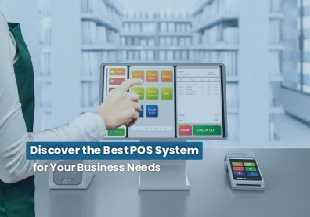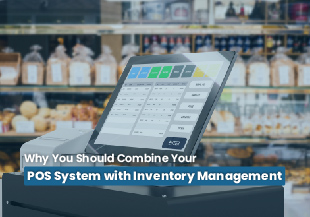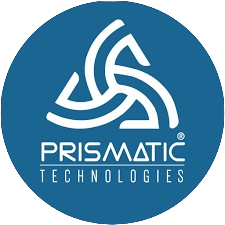LMS system often include features that promote collaboration among students. Discussion forums, group projects, and peer assessments encourage interaction.
An LMS (Learning Management System) is designed to enhance student engagement by tracking, and delivery of educational content. It automates and streamlines the management of courses, training programs, and learning materials.
It provides a centralized system to the education department and delivers modern education that aligns with the expectations of today’s students. It also provides different features like interactive assignments, real-time feedback, and personalized learning paths, an LMS can significantly boost student engagement, making the learning process more dynamic and responsive.
In an educational institution, an LMS helps you to:
Help to arrange quizzes, track grades, and check student progress.
Offer online learning and schedule virtual classes using video tools.
Share documents and host online discussions or forums.
Help to create online courses with videos, images, and other materials for students.
With the help of this software, teachers can easily arrange classes for students, work together, assign tasks, take tests, and check assignment scores online. Besides online learning, an LMS also allows a "blended learning" approach, which mixes in-person teaching with online lessons. Here we will discuss how an LMS can effectively boost student engagement.
Personalized Learning Experiences
An LMS enables the use of personalized learning pathways; it can take both the learning content and the assessment to be tailored to suit individual requirements, which leads to students learning at their own pace. Such personalization allows the students to take proper ownership of their education; therefore, they get fully motivated enough to thoroughly probe into the material.
Interactive Content
Many LMS platforms incorporate multimedia elements such as videos, quizzes, and interactive simulations. These engaging formats make learning more enjoyable and help maintain students' attention. When learners find the content stimulating, they are more likely to participate actively in discussions and activities.
Collaboration Opportunities
LMS systems often include features that promote collaboration among students. Discussion forums, group projects, and peer assessments encourage interaction and teamwork. These collaborative experiences can enhance social learning, making students feel more connected to their peers and invested in their learning community.
Immediate Feedback
It also provides immediate feedback to the customer on their assessments and assignments. Students will know exactly what they do well and what they have to improve upon in no time at all. This means they maintain a growth mindset, focusing on where they need improvement and how to go about achieving this. All this taken into consideration will make students more likely to become more engaged and motivated in life as well.
Accessibility and Flexibility
LMS platforms enable access to course materials anytime and anywhere, accommodating diverse learning styles and schedules. This flexibility allows students to engage with content when they are most ready to learn, whether that's during traditional school hours or at home in a comfortable environment.
Tracking Progress
An LMS provides different features for tracking student progress through analytics and reporting features. Educators can monitor engagement levels and identify which areas may need additional support or intervention. This data-driven approach allows for timely adjustments to instructional strategies, ensuring that all students remain engaged
Benefits Of Using An LMS for Student Engagement
Learning Management Systems (LMS) offer a variety of benefits that significantly enhance student engagement. Here are the main advantages:
Flexible access to materials anytime, anywhere
Engaging interactive content (quizzes, multimedia, gamification)
Improved communication through forums and messaging
Personalized learning paths for diverse needs
Immediate feedback on assessments
Data tracking for targeted support
Motivational gamification elements
Centralized access to all educational resources
Key Challenges in Higher Education Systems
Many universities still rely on outdated learning management systems (LMS), which lack the features for modern blended and online learning. This results in:
Limited course creation flexibility
Difficult user interfaces
Low student engagement due to missing features like forums and chat tools
Insufficient support for struggling students
Consequences include lower enrollment, frustrated staff, and inconsistent learning experiences. In short, outdated LMS platforms hurt an institution’s competitiveness, growth, and student success.
Enhancing Student Engagement with Prismatic's LMS System
Prismatic’s LMS system is designed to transform student engagement through its modern, user-friendly features. By integrating multimedia course creation tools, real-time discussion forums, and interactive group project spaces, it fosters a collaborative and engaging learning environment.
Unlike outdated platforms, Prismatic's LMS provides intuitive navigation that helps eliminate unnecessary distractions in students and instructors alike on the matter of learning as opposed to technology. Advanced analytics allow teachers to see precisely which students need additional support on which topics.
With seamless access to mobile learning, gamified content, and instant communication tools, Prismatic’s system boosts participation and ensures a more dynamic and effective learning experience. As a result, institutions using Prismatic can see improved student retention, satisfaction, and overall learning outcomes.
Conclusion
LMS (Learning Management System) plays a crucial role in boosting student engagement. By offering personalized learning paths, interactive content, collaboration opportunities, and real-time feedback, LMS platforms make learning more dynamic and responsive to individual student needs. Accessibility and flexibility further enable students to engage with materials on their own terms, fostering a more immersive learning experience.
FAQs
What is an LMS?
An LMS (Learning Management System) is a digital platform that helps manage, deliver, and track educational content. It provides tools for course creation, student assessments, progress tracking, and communication.
Can an LMS be used for online and in-person learning?
Yes, many LMS platforms support both fully online and "blended learning," which combines traditional in-person instruction with online elements, allowing for more flexible and comprehensive educational approaches.
How does Prismatic's LMS differ from traditional systems?
Prismatic’s LMS offers an intuitive interface, advanced analytics, real-time collaboration tools, and mobile access, making it easier for both students and educators to stay engaged and focused on learning. It supports a modern, blended learning approach with enhanced interactivity and flexibility.






 Chat with Prismatic Bot
Chat with Prismatic Bot